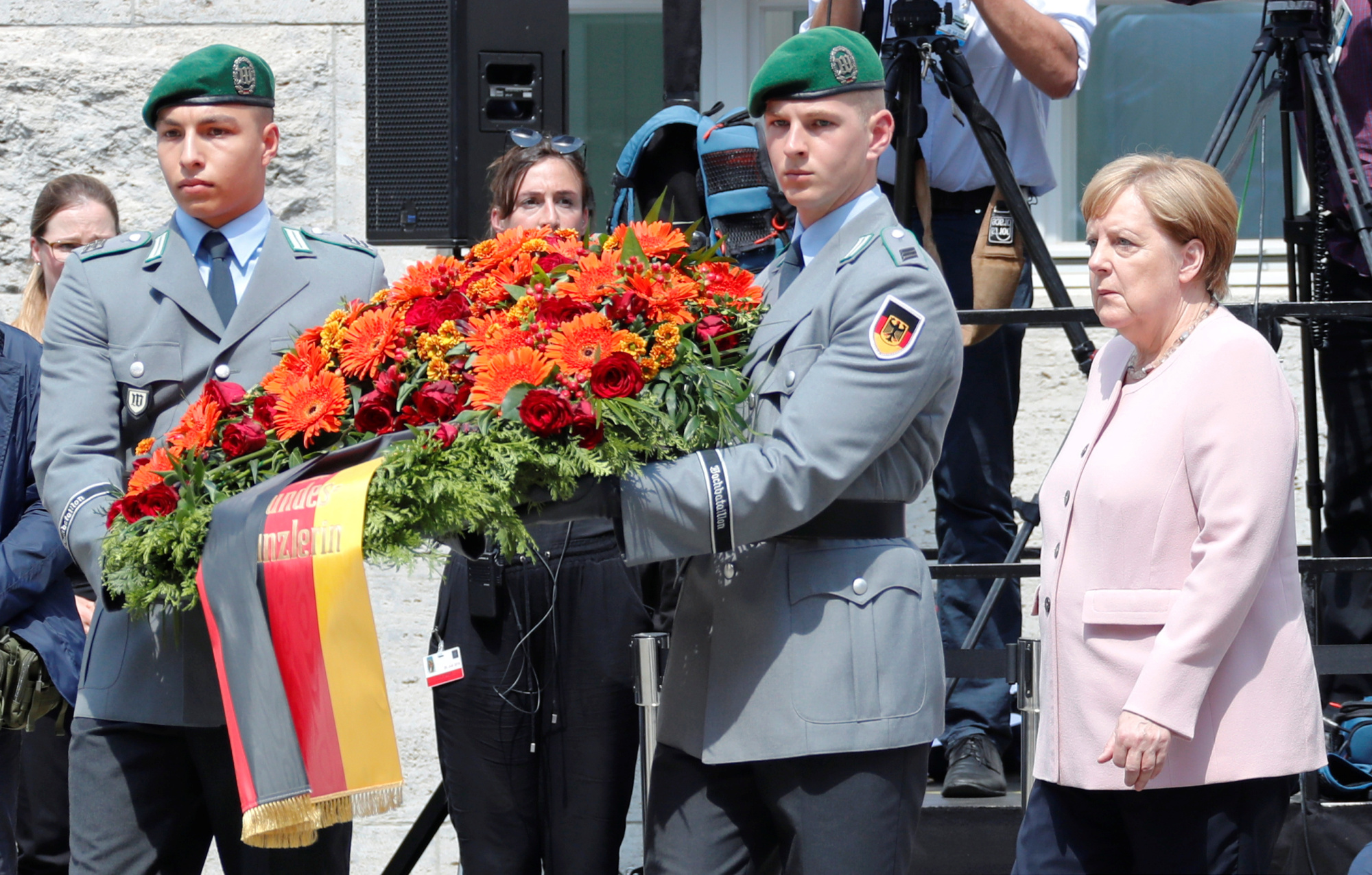Angela Merkel was expecting a friendly chat with business women when she visited Dresden earlier this month. Instead, far-right protesters jeered the German Chancellor's arrival.
Hundreds of demonstrators from the Patriotic Europeans Against the Islamization of the West, a group known as Pegida, gathered in the historic city to voice their anger at Merkel and her decision to welcome over a million refugees since 2015. One threw a bottle at a journalist, another gave a Nazi salute, while a third denied the Holocaust, a criminal offense in Germany. A poster bearing Merkel's image read: Terrorists Welcome.
Despite nearly a decade of consistent economic growth, there's growing fatigue with Merkel and the ruling parties, particularly in the former communist East, which has undergone decades of social and economic change. The region that saw massive right-wing protests last year is now back in focus as voters in three states go to the polls this fall. In two of them — Saxony and Brandenburg — Merkel's Christian Democrats and their junior partner, the Social Democrats, may lose for the first time since reunification in 1990, to the upstart Alternative for Germany, or AfD. That could not only implode her fragile coalition but upend a political landscape dominated by two parties since World War II.



















With your current subscription plan you can comment on stories. However, before writing your first comment, please create a display name in the Profile section of your subscriber account page.